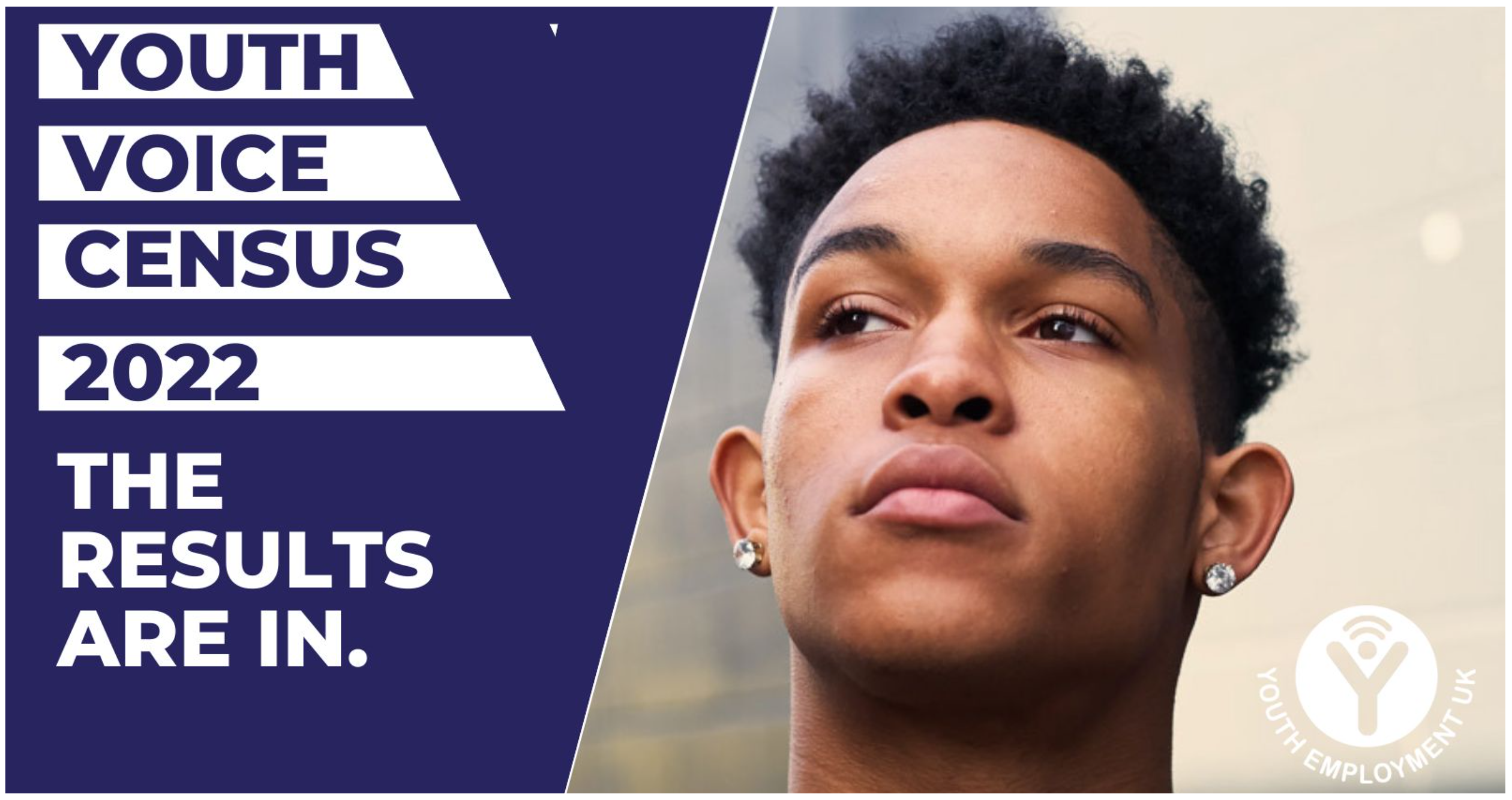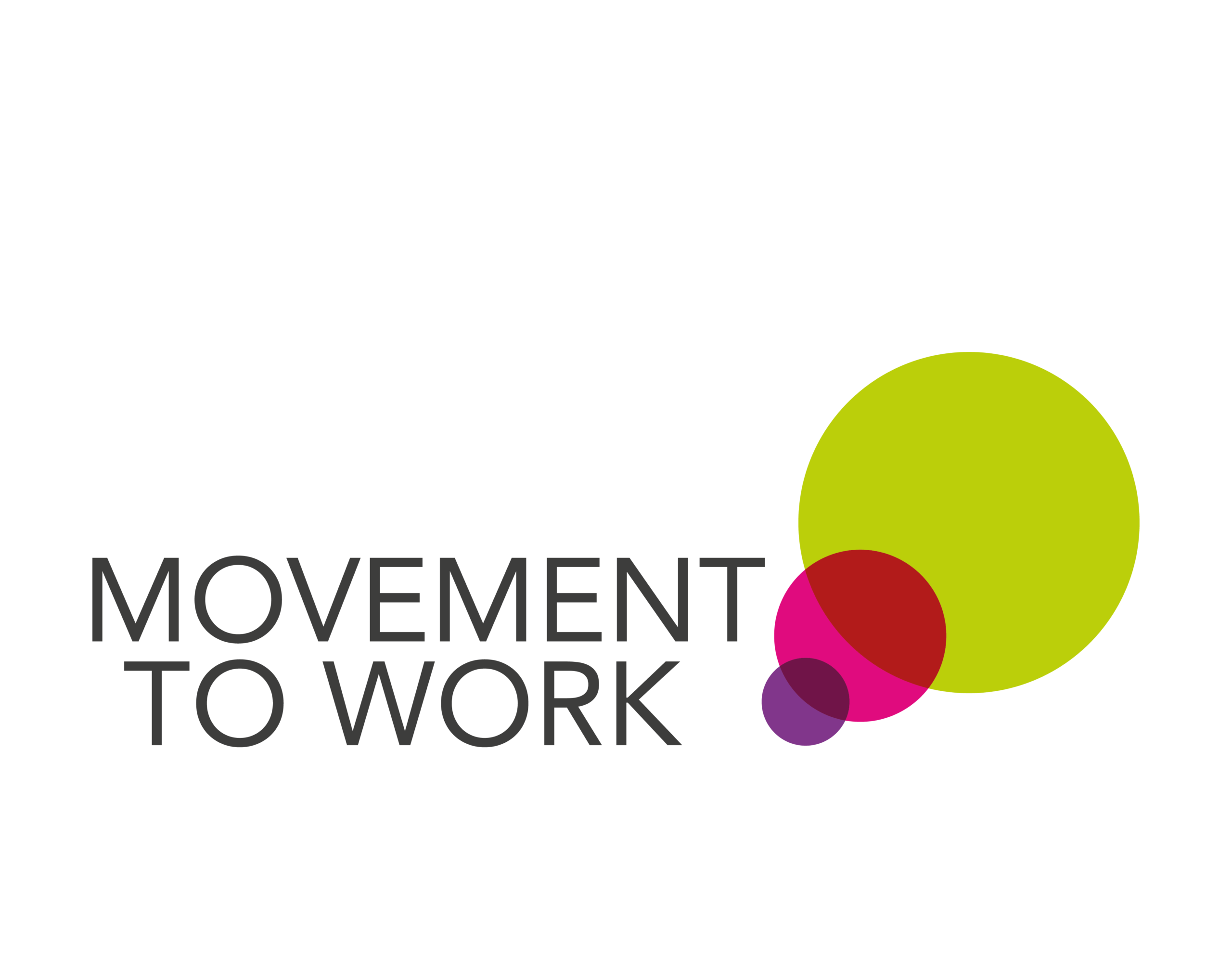
The Youth Voice Census is an annual survey run by Youth Employment UK. It acts as a temperature check of how young people aged 11 – 30 are feeling on a range of issues relating to their transition from education to employment. Over 4,000 young people took part in 2022.
The findings, revealed in a report launched on 6th September 2022, indicate that young people are struggling more than ever before in the face of seemingly insurmountable barriers.
LJ Rawlings, CEO and founder of Youth Employment UK, says:
“The lead findings of this year’s Youth Voice Census focus on the mental health crisis, unfairness and the fact that young people are still unprepared for the world they find themselves in.
The numbers reveal the extent of the emergency. 51% of young people looking for work thought their anxiety was the biggest barrier to accessing work. 31.2% of young people in work struggle with their wellbeing. Nearly a third (28.5%) of young people said they are experiencing ‘social, emotional and mental health challenges’.
The numbers are horrific, and behind each statistic is a young person needing support.
They say it takes a village to raise a child. This must also mean a village can fail a child. We are all the village, and it’s time to choose our roles.”
Face the facts
-
Read and share our 2-slide summary HERE
-
Find out more about The Youth Voice Census and download the full report HERE
Movement to Work Head of Insights & Innovation Jan Palin has reviewed the report and has extracted some key themes and data below.
Young people are struggling more than ever before in the face of seemingly insurmountable barriers.
Today’s report shows a worsening picture of where young people are and where they fit into society today. The system is broken.
The past three years have been traumatic for young people. Covid 19 and its continuing aftermath has acted both as a catalyst and as a suppressant for some of the biggest issues facing young people: accelerating social, emotional, and mental health challenges and contributing to the growing fears and feelings of isolation from age 11 all the way to age 30.
The impact of covid, the cost-of-living crisis, and the uncertainty of political tensions (here and abroad) come on top of the pressure cooker that young people live in, with anxiety relating to education success, social pressures, and making the right decisions about their futures
Key findings of 2022
- Young people’s mental health is at an all-time low, with over half of all young people believing that anxiety or poor mental health is holding them back.
- Those with protected characteristics felt the most disadvantaged; they were at least 10% less likely to feel safe where they lived, to think employers wanted to hire them, or feel confident they had the tools to succeed.
- Fewer young people than ever before feel prepared to access and apply for work.
- Access to quality work is not improving; only 14.2% of young people think they can access quality work where they live.
2022 Statistics
- Young people in work cited one of their biggest barriers to accessing work for them had been work experience (45.2%)
- Over half of young people think their biggest barrier to work will be a lack of work experience with only 36% of young people in education today having access to work experience.
- 51% of young people looking for work thought their anxiety was the biggest barrier to accessing work
- 31.2% of young people in work struggle with their wellbeing
- 55% of current apprentices stated that their school, college or sixth form did not help them with the application/recruitment process
- Less than a third (28.7%) think employers are supportive of hiring young people
- 18.9% of young people required to work from home do not have the space to do so
- 28.5% of young people said they are experiencing ‘social, emotional and mental health challenges’
- Worryingly that only 1 in 4 (25.6%) of young people in education stated that they had heard about apprenticeship’s five times or more. This is too low if we are to continue to encourage young people to see apprenticeships as a credible and viable option
The huge data set gathered this year is a clear and stark warning that we must be more ambitious for our young people, and we must act now! Our collective vision should be a fairer, equal, and quality journey for all young people, whatever their starting point.
Mental Health Emergency
– Loneliness and friendships
Young people told us that they were lonely and had concerns about making and keeping friends at every age and stage. Social connections had been lost during the pandemic and young people were worried about being able to build relationships.
– Self-belief at an all-time low
Young people were at least 10% more likely to state that they are ‘not confident’ or ‘not confident at all’ in their self-belief and related skills than all other skills, with 36.6% of those in education scoring this way and 29.8% of those out of education.
– In education
52% of those in education feel that their education has been disrupted ‘a lot’ or a ‘great deal’. 49.1% of respondents thought that exams and assessments impact their mental health negatively, and those with protected characteristics feel this more acutely.
– Barriers to work
51% of young people looking for work thought their anxiety was the biggest barrier to accessing work, 32% thought anxiety was their biggest barrier.
Difference is the Disadvantage
Being young is seen as a disadvantage by all respondents but there is more nuance and concern as we explore the experience of young people with protected characteristics, carers, and care leavers.
Overall young people with protected characteristics, carers and care leavers were more greatly impacted by change and uncertainty. At every stage of their journey, and when we explore the ongoing impacts of COVID-19 these young people were always more likely to feel that they have been (or will be) impacted most negatively. Self-belief, confidence and staying positive scores were more likely to be at least 10% lower too.
Unprepared for the Future
When asked young people in education what skills they thought were important for work they said that all the skills listed would be important to employers. This is different to previous years where most respondents selected just a few skills, choosing all skills, signals a lack of confidence in understanding the skills they need for their futures.
For those aged 19 plus 57% thought they understood the skills employers were looking for, they rated listening, communication, self-management, motivation, and teamwork as the most important skills employers look for. They rated themselves most confident in listening, digital skills, literacy skills, problem solving and organisation.
Young people aren’t feeling prepared for life outside of education; they do not feel that they have the tools to manage finances, look after themselves or support their mental health and wellbeing.
Quality Work – employers and opportunities
What do young people want from an employer?
- Paying fairly, offering training and development, and having a good reputation were the three most important qualities young people looked for from employers.
What stops young people applying for jobs?
- Low pay and being frequently met with entry level roles with person and qualification requirements that were attainable for them are the biggest factors that stop young people applying for opportunities
There is more to do in supporting employers to be more youth friendly both in how they recruit young people and in how they retain them too.
We must start with an understanding of where young people are right now, be transparent about the jobs being recruited for and understand where better line management training and support can ensure young people, and the businesses they support, thrive.
Applying for work
Confidence in applying for and going through a recruitment process was down on last year:
- 44.6% think they have the skills and knowledge to write a good CV.
- 38.7% think they have the skills and knowledge to attend an assessment centre.
- 46.9% think they have the skills and knowledge to an attend an interview.
- 41.5% feel confident that they are prepared to start employment.
Journey to Work
How long have you been looking for work?
- 21.1% 1 month or less
- 26.3% 2 – 4 months
- 10.5% 4 – 6 months
- 5.3% 6 – 12 months
- 36.8% 12 months +
Who is looking for work the longest?
- Boys are over twice as likely to be looking for work for 12 months or more (75%).
- 60% of straight or heterosexual respondents had been looking for work for 12 months or more compared to 50% of transgender respondents and less than 10% of all other groups.
- 35.7% of White respondents had been looking for work for 12 months or more, this compares to between 15% and 22% for other groups.
- 42.9% of those eligible for free school meals had been looking for work 12 months or more compared to 33% of those not eligible.
- Respondents with additional needs were 9% more likely to be looking for work for 12 months or more.
Any questions or comments, please get in touch jan.palin@movementtowork.com

